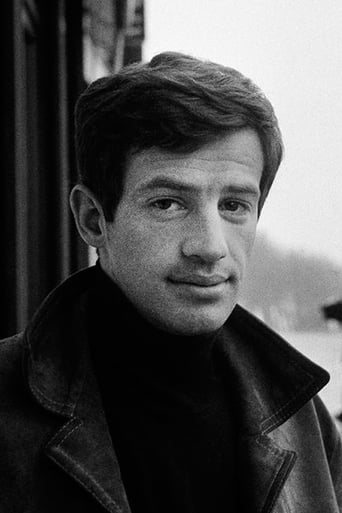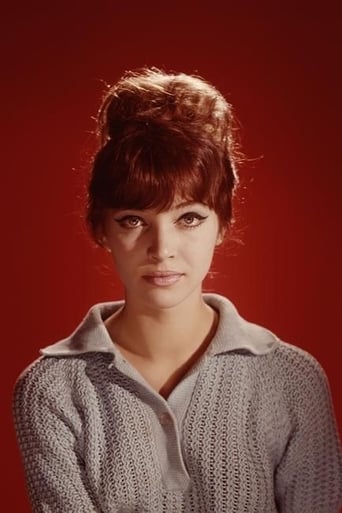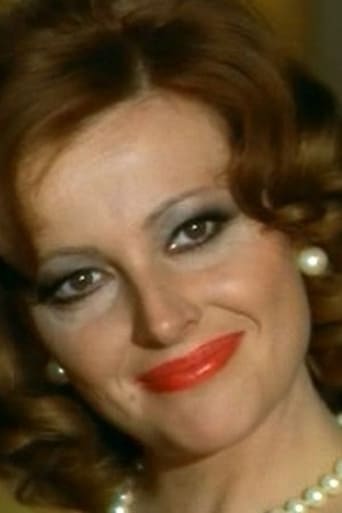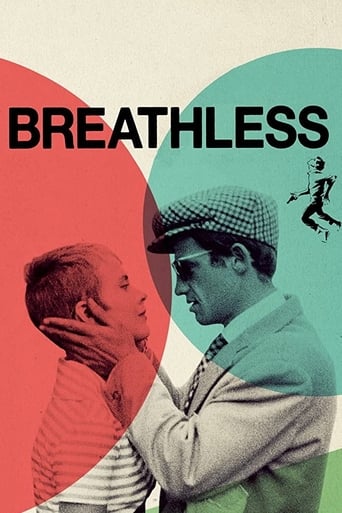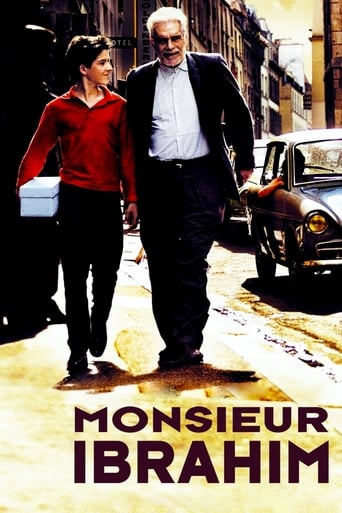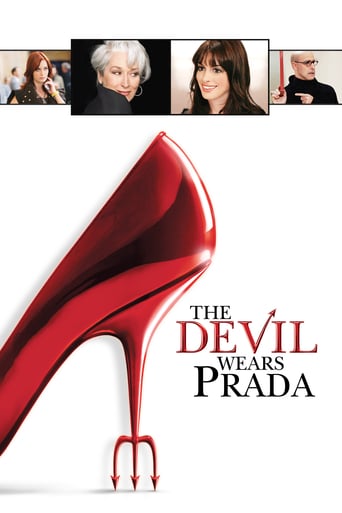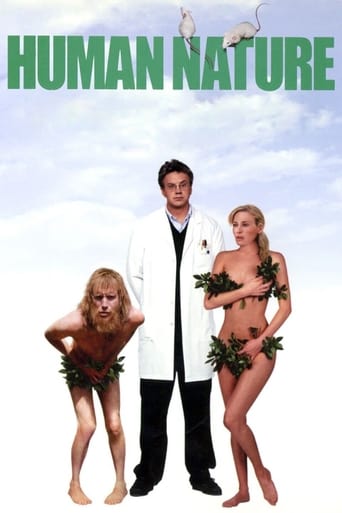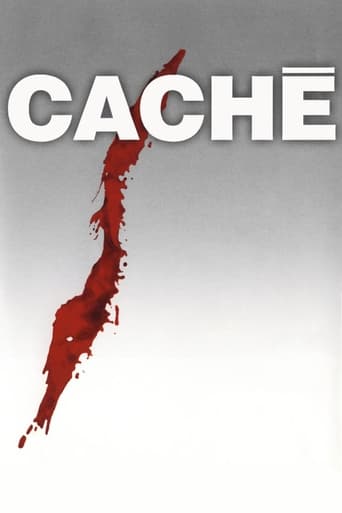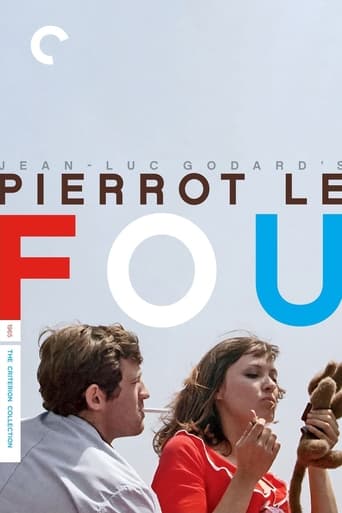
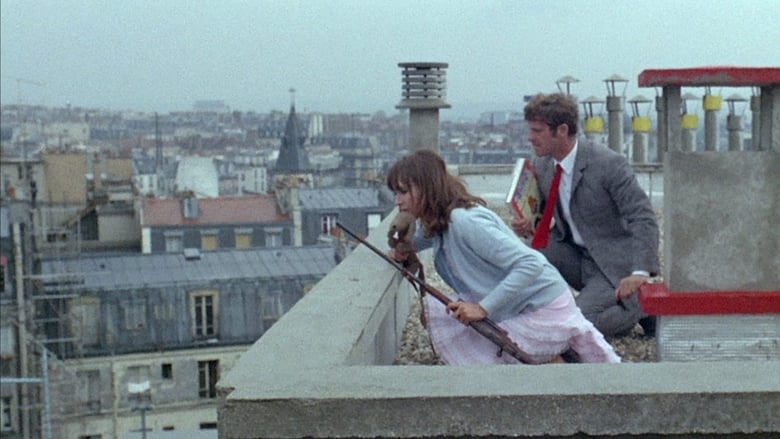
Pierrot le Fou (1965)
Pierrot escapes his boring society and travels from Paris to the Mediterranean Sea with Marianne, a girl chased by hit-men from Algeria. They lead an unorthodox life, always on the run.
Watch Trailer
Cast
Similar titles
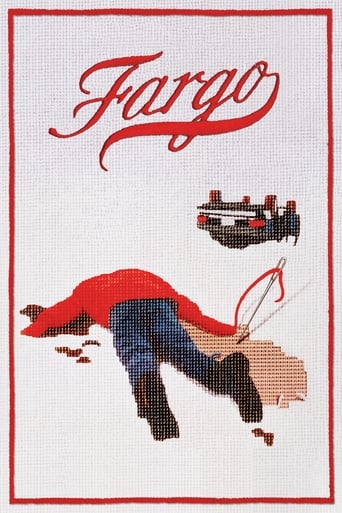
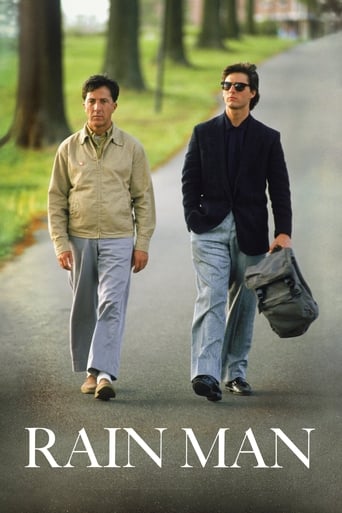
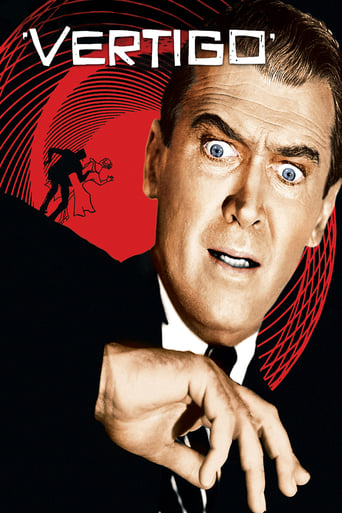
Reviews
Slow pace in the most part of the movie.
A Masterpiece!
Great example of an old-fashioned, pure-at-heart escapist event movie that doesn't pretend to be anything that it's not and has boat loads of fun being its own ludicrous self.
what a terribly boring film. I'm sorry but this is absolutely not deserving of best picture and will be forgotten quickly. Entertaining and engaging cinema? No. Nothing performances with flat faces and mistaking silence for subtlety.
It's a waste of time , boring , nonsense , no acting at all , just aimless scenes with no meanings
Ferdinand, played by Jean-Paul Belmondo, is out of work, bossed around by his rich wife, and bored with his consumerist bourgeois social circle. He is interested only in literature and art, and feels unable to change his life. He falls into an affair with an old flame, Marianne, played by Anna Karina, who turns out to be mixed up in crime, and the two flee across the country. Ferdinand is bookish, self-involved, romantic, and sees everything through the lens of culture; Marianne is practical and given neither to pangs of conscience or intellectual rumination, driven by a love of adventure. They are both driven to each other and unsuited for each other. Ferdinand's running off with her from the beginning exhibits a self-destructive element, a desire to burn down his boring bourgeois life, by killing himself if necessary.Like many of Godard's movies, the movie is the epitome of fun and cool. Both leads are charismatic, photogenic, and make life on the run seem like a desirable state. Even though the plot is basic and even archetypal, the distancing techniques and experimental aspect make it seem fun and fresh. There are musical numbers that are both fun and appropriately dramatize themes, and the same is true of, for example, the random vignette of the sailor obsessed by a tune. The use of primary colors in the set design and the images of the French Riviera are beautiful. If you like Celine, Rimbaud, etc, you may enjoy the extensive reference dropping throughout the movie.The downside of this is that fifty years later the ironic distanced of the movie is no longer such a fresh or promising idea, when nowadays every children's animated movie uses it as an excuse to recycle material that is seen as no longer really relevant by this vagueness as to whether one is serious or not. Even though both characters are unlikable but sympathetic, nevertheless the ending lacks emotional pay-off because how detached one is from the movie that is always presented as a movie. Furthermore, do the extensive cultural references really have a pay off? I think the point might be that all these narrative models we have available to us like gangster movies, love stories, etc, have become trite, but if so, then why would making an escapist movie commenting on them at a meta-level be any better, especially when you could just not make any movie at all? Then, too, the standard French left sixties political posturing feels superficial and unsubtle.Still, this is a fun film and has a feeling of great freedom and spontaneity to it. It is also a nostalgia film now for a bygone era where there were people who felt they were reinventing film and life, that gives one a sense of vicarious optimism and energy.
There is a scene I simply love in Jean-Luc Godard's Pierrot Le Fou, so much so that I'd say it's one of my favorite scenes I have yet to see in any Godard film next to the lengthy tracking-shot in Weekend. The scene comes early on in the film and shows our two criminal leads Ferdinand (nicknamed "Pierrot," played by Jean-Paul Belmondo) and Marianne (Anna Karina) driving along with news on one-hundred and fifteen guerillas being killed. It is then that Marianne states how inherently dehumanizing that statement is to the one-hundred and fifteen victims simply because we don't think of them as one-hundred and fifteen different people but just an empty statistic. We forget that some of those men had families, some even children, and all had their own thoughts and feelings as well as opinions and viewpoints on certain things. A simple statement attempting to collectively include them all can effectively make them less humane and less reminiscent of people.Marianne doesn't stop there. She continues on to say that even photography, albeit interesting, is a bit dehumanizing in its own right. It freezes a moment of time on a simple piece of paper, but the simple caption usually provided at the bottom doesn't do enough justice to the man's personality. In addition, who knows what he was thinking at that moment? He could've been thinking about his life, the world, politics, basketball, etc at that one very moment in time. We'll never know and that heightens the mystery and enigma provided by a photograph.Pierrot Le Fou possesses some of the most incredible observations about the world in any Godard film I have yet to see. Its first hour provides for rousing comedy and drama, revolving around two charismatic and violent criminals that drop everything in their boring life one day and take up a life of crime and unpredictability. Throughout the film's course, it's evident that these characters are (a) completely careless of their actions against the world, (b) could never be with anyone else and are pretty much each others only vice, and (c) have seen way too many films, mostly ones from mainstream Hollywood.Godard uses both Ferdinand and Marianne as people with personalities probably not far off from his own ideas, portraying two characters disgusted by the pop art, commercialist culture America has greatly emphasized. After Ferdinand attends a party where people talk empty philosophy and speak in what sounds like infomercial dialog - beautifully articulating shallowness and the effective of commercialism - he visits his babysitter and ex-girlfriend Marianne, whom he eventually runs away with, abandoning his wife and children in search of a purer life off the land.Ferdinand and Marianne carjack, harass innocent people, and do hugely contemptible things. Their actions remind a seasoned Godard viewer of his first feature film Breathless, which involved two vigilantes, in addition to the previously-mentioned Weekend. Godard clearly has a fascination with the rebel culture, usually following the creative escapades of two dapper cinephiles who, like the film they're currently in, love to defy convention. This is totally fine by me, speaking as someone who has loved each film Godard has made that focused on rebels.All the usually Godardian elements are on display here, from the crisp cinematography of Raoul Coutard that beautifully emphasizes color, the often intrusive but simultaneously fascinating words that pop on screen with no forewarning, the soft and poetic narrations that don't always make a lot of sense, and title cards offering quotes or disjointed fragments of what are either poems or simple musings on life. These elements really get kicked into high-gear during the last fifty minutes of the film. By then, the film begins to have more fun with itself and its premise, rather than assuming a more straight-forward sense of plotting, which is carried throughout the entire first-half.The final observation I can make about Pierrot Le Fou is its dialog, which, for a Godard film, is more prevalent here than any other type of narrative device like narration, literary, etc. Despite lots of talking, little sense or impact is made on these characters. They hear what they want to hear. As Ferdinand states, Marianne speaks entirely in emotion while he speaks entirely in directionless little musings. One wonders how these people could stay together for so long, but as we come to realize, they can't be loved by anyone else but themselves.Pierrot Le Fou strings along numerous, brightly-colored visuals of blood, oceans, and the countryside of France with many scenes of our two leads talking in a subversive manner that really shouldn't work as well as it does. With Godard behind in the camera, and when a pen in his hand, anything goes, but here, he has concocted a masterpiece in observations and societal criticism that doesn't feel burden by too many half-baked ideas.Starring: Jean-Paul Belmondo and Anna Karina. Directed by: Jean-Luc Godard.
Godard gets 2 for trying to be different, but this early sixties, experimental, existential (it has to be, doesn't it?), barely plotted, inexplicable jumble of ideas, off the cuff meanderings, and comments on what was happening in the world at the time just does not stand the test of time. It now looks mannered, pretentious, tedious, pseudo-philosophical (as if made for an in-crowd seminar critique by Jean Paul Sartre and his Left Bank Gitanes-smoking cronies), experimental colour-laden because the Director could fiddle about in homage to his European contemporaries mess of a film. Yes, Godard was revered, but 'Alphaville' and 'Breathless' were fit for cinema - this only bores you to tears with his self-indulgence masquerading as 'IMPORTANT' cinema. Belmondo survives everything, and he does here, effortlessly reading philosophy at the same time as coolly romancing an out-of-reach femme fatale. Some of the sixties cinema was crap on reflection - and this is prime off-colour rump.
